For anyone who uses Violentmonkey, it is easy to find a way to edit a script like this:
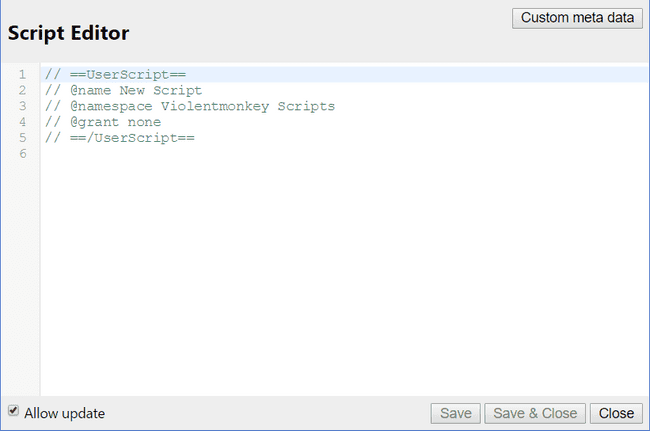
However, it is really hard to make everyone love it. A probably likes a theme of monokai, while B prefers eclipse. C might use 2 spaces for indentation while D prefers tabs.
It is impossible to satisfy every single user. Lots of configurations may be added for this, but are they really worth it? A user would have to face lots of choices before he could use it just as a script manager, or have to look for a simple option among lots of unrelated editor options. What is worse, the browser may inhibit some shortcuts or operations that a local editor can have. In other words, an editor inside Violentmonkey will never be as good as your favorite one.
Here comes the question: How to edit my script with my favorite editor?
Save to a file
First, copy the script to your favorite editor and save it to a file.
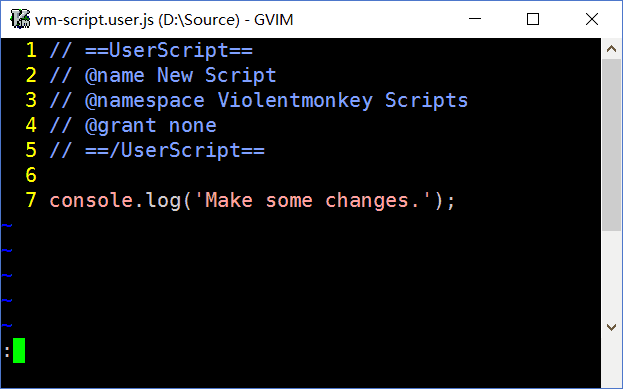
VIM is my favorite editor, and the script is saved at D:/Source/vm-script.user.js. Note that the script file must have a name ending with .user.js, otherwise won't be recognized by Violentmonkey.
Install a local script
First make sure the local script is named with a suffix of .user.js.
There are two ways to install a local script:
-
Easy way: drag the file into the browser.
It will be recognized by Violentmonkey and loaded in the confirmation page.
Make sure "Allow access to file URLs" is checked in your Chrome extension settings (
chrome://extensions).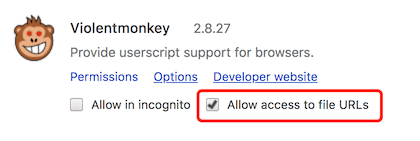
Note that due to a known issue, the easy way won't work for Firefox users.
-
Hard way: start a local HTTP server, then open the local script with a URL like
http://localhost:8080/my-script.user.js.One of the best way is to use node/npm's indexzero/http-server. If you have it installed, just type
http-server -c5at the directory of your script to start a server.Make sure the hostname is
localhostand the script name ends with.user.js.Note that due to a known issue, the hard way needs to handle caching. In
http-server -c5option-c5sets cache time for max-age header to 5 seconds, thus forcing a browser to query the server URL every 5 seconds. The caching can be disabled with-c-1option.
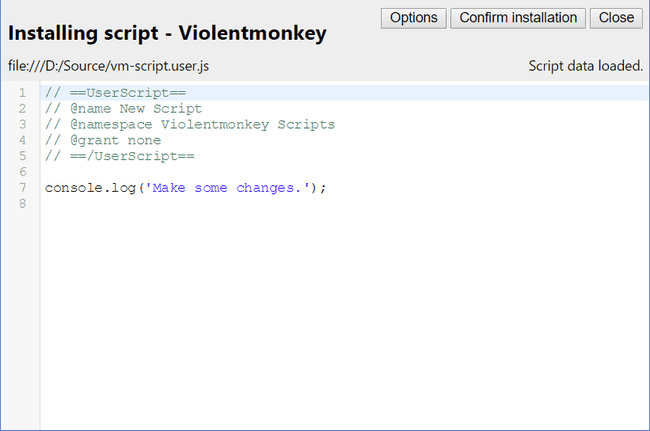
Make sure the track local file option is checked and then confirm installation.
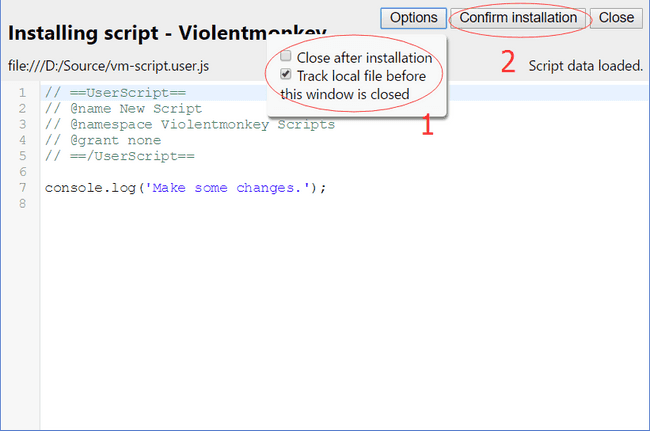
Edit and sync
After installation, the confirmation page will keep watching the file before the page is closed. Once the file is changed, the new version will be installed automatically. As a result, you edit the script in your favorite editor, and the changes are synced to Violentmonkey immediately.
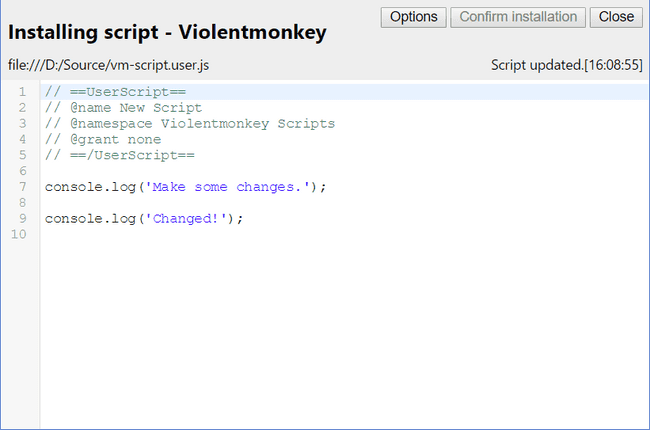
Known issues
- In Firefox Violentmonkey is not allowed to access local files, so we have to start a local HTTP server for tracking. See this on bugzilla.
- The older the file is, the more seldom a browser will query it. See this Violentmonkey's issue.